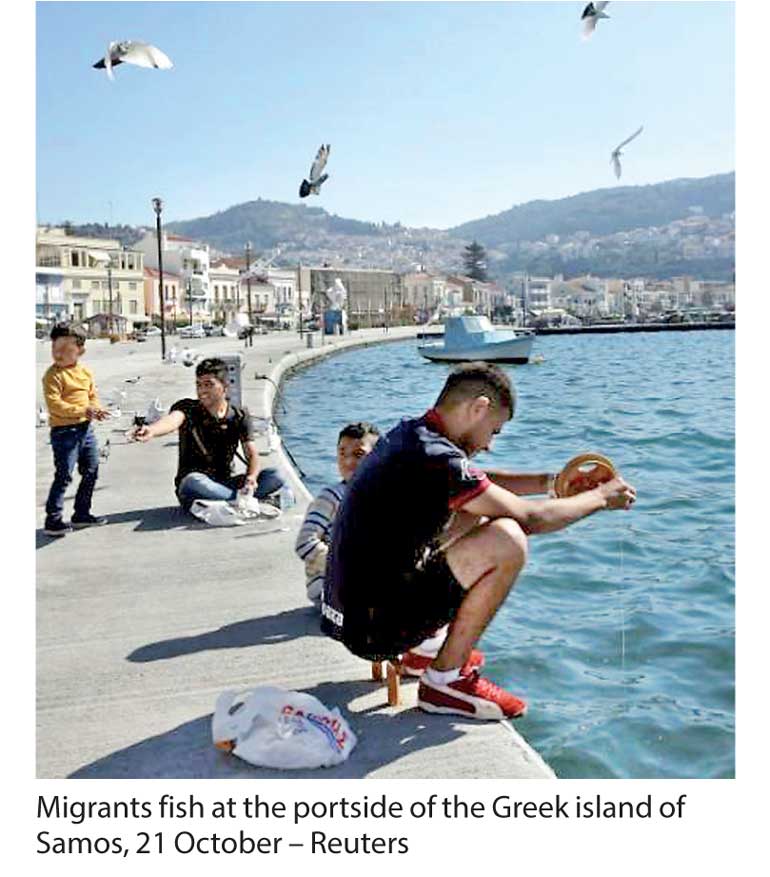Friday Feb 20, 2026
Friday Feb 20, 2026
Friday, 27 October 2017 00:00 - - {{hitsCtrl.values.hits}}
 Samos, Greece (Reuters): Even on the nights Muhammad Ahlum’s children manage to fall asleep, they wake up screaming.
Samos, Greece (Reuters): Even on the nights Muhammad Ahlum’s children manage to fall asleep, they wake up screaming.
Since Ahlum and his family fled Syria’s civil war five months ago, they have been living in a grim and congested camp on the Greek island of Samos. Like other asylum-seekers in limbo in Greece, they are barely coping.
More than 14,500 asylum-seekers, mostly Syrians and Iraqis, are in five camps on Greek islands close to Turkey. Aid groups have warned a mental health emergency is developing, fueled by poor living conditions, neglect and violence.
Arrivals to Greece from Turkey had all but stopped after the European Union struck a deal with Ankara last year. But asylum procedures can take months, and a small, steady flow had continued. A recent sharp rise is straining facilities.
“I am very depressed. My wife is sick,” said Ahlum, 36, recounting how his children, aged six and eight, have stopped eating food in the camp and are terrified of noises.
“This is my life in the camp. A very difficult life,” he said. “Sometimes they can’t sleep at night. Sometimes they wake up screaming and crying.”
Over a dozen human rights groups wrote to the Greek prime minister on Monday urging him to end the “containment” of asylum seekers on the islands, where camps hold two to three times as many people as they were designed for.
“In the last two months, there has been a significant increase in people talking about suicide as a way to escape from this situation,” said Jayne Grimes, manager of mental health activities on Samos for Doctors Without Borders.
More than 2,500 asylum-seekers are on Samos, in facilities for 700. Hundreds have set up tents in the surrounding forest.
“If we knew it would be like this, we would have stayed under the bombing,” said Syrian Muahab Ashaad, 27, as he sat with his son in their tent under the trees. The government has said it plans to move 2,000 asylum-seekers from Samos and nearby Lesbos to the mainland, where about 50,000 more refugees and migrants live in camps. Aid organizations say it may not enough.
“The most urgent need is to prepare for the winter, not only for the cold but for the rains,” said Rose de Jong, Samos field officer for the United Nations refugee agency.
Locals on Samos, just a few miles from Turkish shores, are divided. Some say the island can’t cope with the sheer numbers.
“The situation has become unbearable,” said Athanasios Terzis, a businessman. “We don’t have anything against them. We just want them to leave and to be taken to the rest of Greece.”